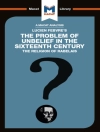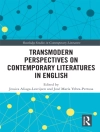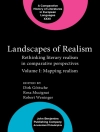This innovative contribution to understanding the promise and contradictions of contemporary postcolonial culture applies a wide array of theoretical tools to a large body of literature. The author compares the work of established Indian writers including Bharati Mukherjee, Meena Alexander, Sara Suleri, and Sunetra Gupta to new writings by such Afro-Italian immigrant women as Ermina dell’Oro, Maria Abbebù Viarengo, Ribka Sibhatu, and Sirad Hassan. Sandra Ponzanesi’s analysis highlights a set of dissymmetrical relationships that are set in the context of different imperial, linguistic, and market policies. By dealing with issues of representation linked to postcolonial literary genres, to gender and ethnicity questions, and to new cartographies of diaspora, this book imbues the postcolonial debate with a new élan.
Table of Content
Acknowledgments
Introduction
1 Touchstones
2 The Exuberance of Immigration: Bharati Mukherjee, Jasmine
3 The Shock of Arrival: Meena Alexander, Fault Lines
4 Alienation and Narration: Sara Suleri, Meatless Days
5 Floating Myths: Sunetra Gupta, Moonlight into Marzipan
6 A Short Story about the Italian Empire: From Fascist Propaganda to
Postcolonial Representations
7 Daughters of Empire: Métissage and Hyphenated Identities: Erminia dell’Oro and Maria Abbebù Viarengo
8 Living in Translation: Ribka Sibhatu, Aulò: Canto-Poesia dall’Eritrea
9 Voices in Pain: Once We Were Warriors: Sirad S. Hassan, Sette Gocce di Sangue
10 Conclusion
Notes
Bibliography
Index
About the author
Sandra Ponzanesi is Assistant Professor and Research Fellow of Gender and Postcolonial Studies at Utrecht University, The Netherlands.












